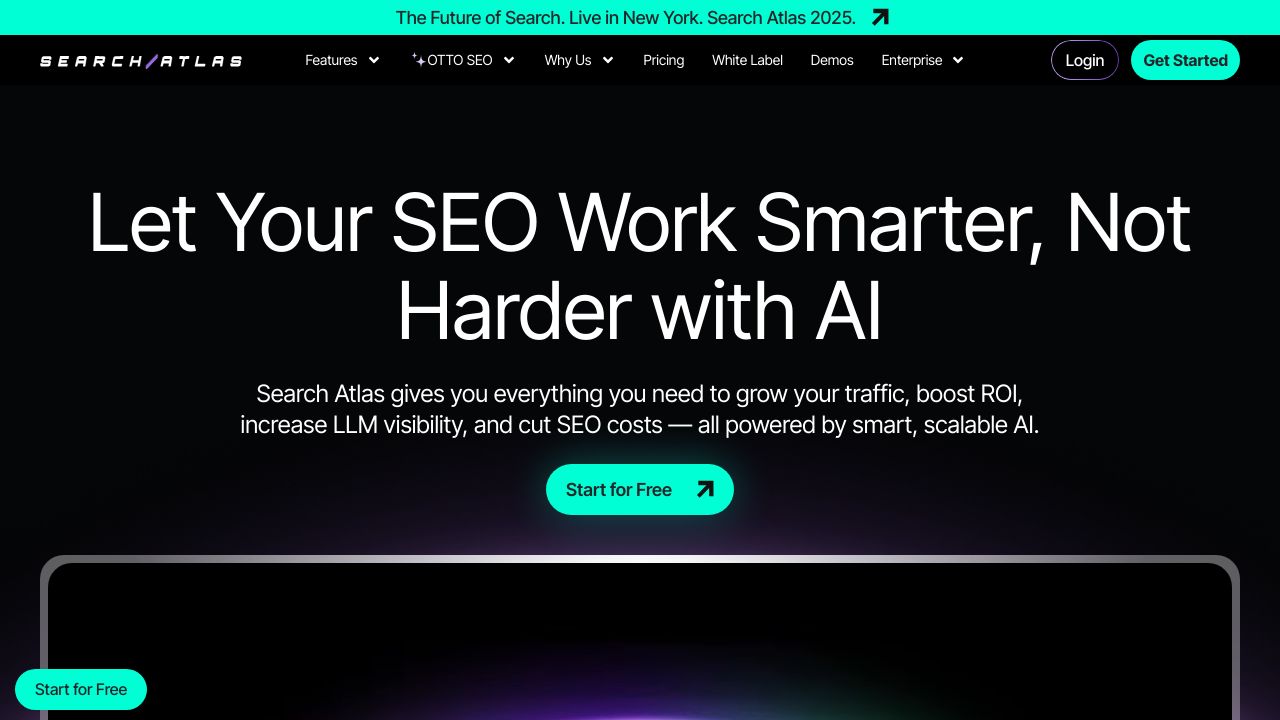WordPress powers over 40% of all websites, but most content creators still rely on outdated keyword research methods that can't keep up with today's search landscape. Traditional approaches like manually brainstorming terms or using basic keyword tools often miss the semantic relationships that modern search engines prioritize.
The game has changed. Search engines now understand context, user intent, and topic clusters better than ever before. This shift demands a more sophisticated approach to how to find keywords that actually drive meaningful traffic to your WordPress site.
Why Traditional Keyword Research Falls Short in 2025

Manual keyword research typically involves starting with a few seed terms and expanding them through tools like Google Keyword Planner. But this approach has serious limitations.
First, it's incredibly time-consuming. You might spend hours manually grouping related keywords, only to miss important semantic connections that could unlock new content opportunities. Second, traditional methods often focus on exact-match keywords rather than understanding the broader topic clusters that search engines now prioritize.
Most importantly, manual approaches struggle with scale. If you're managing content for multiple WordPress sites or need to research hundreds of keywords, the traditional method becomes practically impossible.
The Power of Hybrid AI-Manual Keyword Strategy
The solution isn't to abandon human expertise entirely. Instead, the most effective approach combines AI efficiency with human validation. AI tools excel at processing massive datasets and identifying patterns that humans might miss, while manual validation ensures the results align with your specific business goals and audience needs.

This hybrid approach lets you process thousands of keywords in minutes rather than days, while still maintaining the strategic oversight that only human expertise can provide. You get the best of both worlds: AI-powered scale and human-driven strategy.
Understanding AI-Assisted Keyword Clustering
AI keyword clustering uses machine learning algorithms to analyze thousands of keywords and group them based on semantic similarity, search intent, and topical relevance. Instead of manually sorting keywords into arbitrary groups, AI can identify natural patterns in how people search for information.
What is AI Keyword Clustering?
AI clustering applies natural language processing (NLP) and machine learning to understand the relationships between different search terms. The algorithms analyze factors like search results overlap, user behavior patterns, and semantic similarity to group keywords that serve similar search intents.
For example, an AI tool might cluster keywords like "WordPress SEO plugin," "best SEO plugins WordPress," and "WordPress SEO optimization tools" together because they all indicate someone looking for SEO solutions for their WordPress site, even though the exact words differ.
Benefits of AI Clustering for WordPress Content

- Scalability: Process thousands of keywords in minutes instead of hours
- Semantic understanding: Identify related terms you might never have considered manually
- Content gap identification: Discover missing topics in your current content strategy
- Intent-based grouping: Cluster keywords by what users actually want to accomplish
- Competitive insights: Understand how competitors structure their content around keyword clusters
AI vs. Traditional Keyword Grouping Methods
Traditional keyword grouping relies heavily on manual categorization based on obvious word similarities. You might group "WordPress themes" and "WordPress templates" together because they share similar words, but miss that "WordPress design customization" serves the same user intent.
AI clustering goes deeper. It analyzes actual search behavior, SERP overlap, and semantic relationships to create more meaningful groups. This approach often reveals unexpected connections that can inform your content strategy in ways manual methods simply can't match.
Essential Tools and Setup for AI-Powered Keyword Research

Choosing the right tools makes the difference between a successful AI-assisted keyword strategy and a frustrating experience. You'll need platforms that can handle large datasets, provide accurate clustering, and integrate well with your WordPress workflow.
Top AI SEO Tools for Keyword Clustering
Search Atlas stands out as one of the most comprehensive AI SEO platforms, offering advanced keyword clustering capabilities alongside content optimization features. The platform uses machine learning to analyze search trends and group keywords by semantic similarity.
Other notable options include Surfer SEO, which combines keyword clustering with content analysis, and various specialized clustering tools that focus specifically on grouping keywords by search intent and topical relevance.
When evaluating tools, look for features like bulk keyword processing, intent-based clustering, SERP analysis integration, and export capabilities that work well with your existing WordPress workflow.

WordPress-Specific Keyword Research Plugins
Several WordPress plugins can streamline your keyword research workflow by integrating directly with your content management process. These tools typically connect with external APIs to pull keyword data and clustering insights directly into your WordPress dashboard.
The key is finding plugins that don't just import keywords, but actually help you organize and implement them within your content strategy. Look for solutions that can suggest related keywords as you write and help you track keyword performance over time.
Setting Up Your AI Keyword Research Workflow
Start by connecting your chosen AI tool to your existing analytics setup. Most platforms can integrate with Google Search Console and Google Analytics to provide more accurate clustering based on your actual search performance data.
Create a standardized process for exporting clustered keywords and importing them into your content planning tools. This might involve setting up automated reports or creating templates that make it easy to move from keyword clusters to actual content briefs.
Step-by-Step Guide: How to Find Keywords Using AI Clustering
The most effective approach to AI-assisted keyword research follows a systematic process that combines automated discovery with strategic validation. Here's how to implement this method for your WordPress content strategy.
Phase 1: Define Your WordPress Content Goals and Seed Keywords
Before diving into AI tools, establish clear objectives for your WordPress site. Are you trying to increase organic traffic, generate leads, or build authority in a specific niche? Your goals will influence how you interpret and act on AI-generated keyword clusters.
Start with 10-20 seed keywords that represent your core topics. These should be terms your target audience actually uses, not just industry jargon. If you run a WordPress development agency, your seeds might include "WordPress custom development," "WordPress maintenance," and "WordPress security services."
Phase 2: Generate Keyword Lists with AI Tools
Feed your seed keywords into your chosen AI platform and let it expand the list. Most tools will generate hundreds or thousands of related terms, including long-tail variations, question-based queries, and semantically related phrases you might never have considered.
Don't worry about quality at this stage. The goal is volume and discovery. AI tools excel at finding unexpected connections and variations that can reveal new content opportunities for your WordPress site.
Phase 3: AI Clustering and Search Intent Analysis
This is where AI really shines. The platform will analyze your expanded keyword list and group terms based on semantic similarity and search intent. You'll typically see clusters organized around themes like "informational," "commercial," and "transactional" queries.
Pay attention to cluster sizes and the relationships between different groups. Large clusters might indicate high-opportunity topics, while smaller, highly specific clusters could represent niche content opportunities that competitors are missing.
Phase 4: Analyzing Cluster Results and Identifying Content Opportunities
Review each cluster to understand the user journey it represents. A cluster around "WordPress backup solutions" might include everything from "how to backup WordPress" to "best WordPress backup plugins" to "WordPress backup service pricing."
This analysis reveals content gaps in your current WordPress strategy. Maybe you have great technical content about backups but nothing addressing cost concerns or comparison shopping behavior.
Manual Validation: The Critical Human Touch
AI clustering provides the foundation, but human validation ensures your keyword strategy actually serves your business goals and audience needs. This step separates successful SEO strategies from those that generate traffic without meaningful results.
Why Manual Validation is Still Essential
AI tools can miss important nuances about your specific audience, industry, or business model. They might cluster keywords that seem related but actually serve different customer segments or stages of the buying journey.
Manual validation also helps you identify keywords that might be technically accurate but practically useless for your WordPress site. Just because a keyword gets search volume doesn't mean it's worth targeting if it doesn't align with your content capabilities or business objectives.
Manual Review Framework for Keyword Clusters
Develop a systematic approach to reviewing AI-generated clusters. Start by asking three key questions for each cluster:
- Does this cluster represent a real user need that our WordPress content can address?
- Are the keywords in this cluster actually related, or has the AI made incorrect connections?
- Can we create content that satisfies the search intent for most keywords in this cluster?
Validating Search Intent and User Behavior
Manually search for representative keywords from each cluster to understand what Google actually shows users. If the SERP results don't align with your content strategy or capabilities, that cluster might not be worth pursuing regardless of what the AI suggests.
Look for patterns in the types of content that rank well. Are users looking for tutorials, product comparisons, or service pages? This insight helps you plan content that actually matches search intent rather than just targeting keywords.
Competitive Analysis and Market Validation
Research what competitors are doing with similar keyword clusters. Are they creating comprehensive guides, product pages, or blog series? Understanding the competitive landscape helps you identify opportunities to create better, more comprehensive content.
Don't just copy what competitors do, but use their approach to validate that there's real demand for content around specific keyword clusters. If multiple established sites are targeting a cluster, it's probably worth considering for your WordPress strategy.
Implementing Keywords in WordPress Content Strategy
The real value of AI-assisted keyword clustering comes from implementation. Your validated clusters need to transform into actual content that serves users and achieves your business objectives.
Creating Content Maps from Keyword Clusters
Transform each validated cluster into a content brief that outlines the user intent, key topics to cover, and success metrics. Large clusters might become comprehensive pillar pages, while smaller clusters could inform blog posts or FAQ sections.
Consider the relationship between clusters when planning your WordPress site architecture. Related clusters might work well as a content series or hub-and-spoke model where a main page links to supporting content pieces.
WordPress On-Page Optimization with Clustered Keywords
Use keyword clusters to inform your on-page optimization strategy. Instead of focusing on exact-match keyword density, incorporate related terms from the cluster naturally throughout your content. This approach aligns with how search engines understand topical relevance.
Structure your WordPress posts and pages to address multiple keywords within a cluster. Use headings, subheadings, and internal linking to create clear topical sections that serve different aspects of user intent within the cluster.
Content Gap Analysis and Topic Authority Building
Compare your validated keyword clusters against your existing WordPress content to identify gaps. You might discover that you have great content for informational queries but nothing addressing commercial intent within the same topic area.
Use these gaps to plan content that builds topical authority. Creating comprehensive coverage of keyword clusters signals to search engines that your WordPress site is a authoritative resource on specific topics.
Measuring Success and Continuous Optimization
Your AI-assisted keyword strategy needs ongoing measurement and refinement. The most successful approaches treat keyword research as an iterative process rather than a one-time project.
Key Metrics for AI-Assisted Keyword Performance
Track metrics that reflect the quality of your keyword clusters, not just traditional SEO metrics. Monitor how well your content serves the full range of keywords within each cluster, and whether users engage with content in ways that suggest you're meeting their intent.
- Cluster coverage: What percentage of keywords in each cluster are you ranking for?
- Intent satisfaction: Are users completing desired actions after finding your content?
- Content performance: Which clusters generate the most valuable traffic?
- Competitive positioning: How are you performing relative to competitors for each cluster?
WordPress Analytics Setup for Keyword Tracking
Configure Google Analytics and Search Console to track performance at the cluster level, not just individual keywords. Create custom segments and goals that help you understand how different clusters contribute to your overall WordPress site objectives.
Set up automated reporting that shows cluster performance over time. This helps you identify which types of clusters work best for your audience and business model, informing future keyword research cycles.
Iterating and Improving Your Keyword Strategy
Use performance data to refine your manual validation process. If certain types of AI-generated clusters consistently underperform, adjust your validation criteria to filter them out earlier in the process.
Regularly re-run your AI clustering analysis with fresh data. Search behavior evolves, and new opportunities emerge as your WordPress site builds authority and attracts different audience segments. The most successful keyword strategies adapt continuously rather than relying on static research.
Remember that learning how to find keywords effectively is an ongoing process. The combination of AI efficiency and human validation gives you the best foundation for sustainable, scalable keyword research that actually drives meaningful results for your WordPress content strategy.

